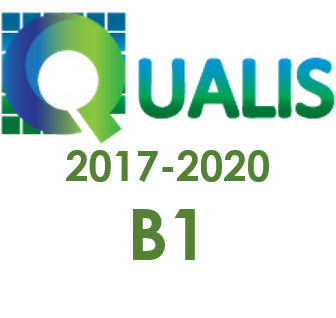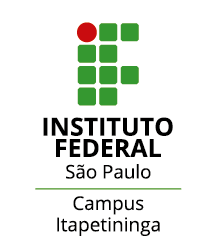Assessment practices in teacher education
a study of Portuguese and Polish students and programme coordinators
Keywords:
Ensino Superior, Avaliação, Formação de Professores, Alunos futuros professores, coordenadoresAbstract
This article reports on findings arising from a broader study aimed at understanding student teachers and programme coordinators’ views on assessment practices in teacher education programmes in Portugal and Poland. In total, 355 Portuguese and 434 Polish students participated in the study. As for the interviews, 6 Portuguese and 8 Polish coordinators participated. Findings point to a greater preference for traditional assessment methods by the Polish students, while Portuguese students emphasise fairness of participation in assessment and also report higher levels of participation in assessment. The Portuguese coordinators point to the need to change the ways in which feedback is provided and its importance as well the need for a better preparation of the students for their professional practice. In turn, the Polish coordinators highlight the need to implement assessment methods that prepare students for teaching practice.
Downloads
References
ALHIJA, F. N. A. Teaching in higher education: Good teaching through students’ lens. Studies in Educational Evaluation, 54, 4-12, 2017. https://doi.org/10.1016/j.stueduc.2016.10.006
ALKHARUSI, H. A. Correlates of Teacher Education Students' Academic Performance in an Educational Measurement Course. International Journal of Learning, v. 16, n. 2, 2009.
ALLEN, J. M., & WRIGHT, S. E. Integrating theory and practice in the pre-service teacher education practicum. Teachers and teaching, v. 20, n. 2, pp. 136-151, 2014. https://doi.org/10.1080/13540602.2013.848568
BIGGS, J. Aligning teaching and assessing to course objectives. Teaching and learning in higher education: New trends and innovations, v. 2, n. 4, pp. 13-17, 2003.
BLACK, P., & WILIAM, D. Assessment and classroom learning. Assessment in Education: principles, policy & practice, v. 5, n. 1, pp. 7-74, 1998. https://doi.org/10.1080/0969595980050102
BOUD, D. & ASSOCIATES. Assessment 2020: Seven Propositions for Assessment Reform in Higher Education. Sydney: Australian Learning and Teaching Council. 2010. http://www.iml.uts.edu.au/assessment-futures/Assessment-
BOUD, D. Assessment and the promotion of academic values. Studies in higher education, v. 15, n. 1, 101-111, 1990. https://doi.org/10.1080/03075079012331377621
BROWN, G. T., & REMESAL, A. Prospective teachers' conceptions of assessment: A cross-cultural comparison. The Spanish journal of psychology, v. 15, n. 1, pp. 75-89. 2012 https://doi.org/10.5209/rev_SJOP.2012.v15.n1.37286
BROWN, S., & KNIGHT, P. Assessing learners in higher education. Psychology Press, 1994.
BULLOUGH, R. V., & GITLIN, A. Becoming a student of teaching: Methodologies for exploring self and school context. (No Title), 1995.
CARLESS, D., SALTER, D., YANG, M., & LAM, J. Developing sustainable feedback practices. Studies in higher education, v. 36, n. 4, pp. 395-407, 2011. https://doi.org/10.1080/03075071003642449
COHEN, L., MANION, L., & MORRISON, K. Research methods in education, 6. Baskı, Oxon: Routledge, 2007.
COUTINHO, C. P. Metodologia de investigação em ciências sociais e humanas. Leya, 2014.
DARLING-HAMMOND, L. Teacher education around the world: What can we learn from international practice?. European journal of teacher education, v. 40, n. 3, pp. 291-309, 2017. https://doi.org/10.1080/02619768.2017.1315399
DOCHY, F., SEGERS, M. GIJBELS, D., & STRUYVEN, K. Assessment Engineering: Breaking down Barriers between Teaching and Learning, and Assessment. In D. Boud and N. Falchikov (pp. 87–100). Rethinking Assessment in Higher Education: Learning for the Longer Term. Routledge, 2007.
EGGEN P., & KAUCHAK, D. Educational psychology: Windows on classrooms. New Jersey Prentice Hall, Inc, 2001.
FERNANDES, D. Pesquisa de percepções e práticas de avaliação no ensino universitário português. Estudos em Avaliação Educacional, v. 26, n. 63, pp. 596-629, 2015. https://doi.org/10.18222/eae.v26i63.3687
FLORES, M. A. Teacher education curriculum. International Handbook of Teacher Education: Volume 1, pp. 187-230, 2016. https://org.doi/10.1007/978-981-10-0366-0_5
FLORES, M. A. (Ed.) Avaliação no Ensino Superior: Conceções e Práticas. De Facto Editores. Santo Tirso: Coleção Practicum – Ciências da Educação, 2019.
FLORES, M. A., PEREIRA, D., FERNANDES, E., & COUTINHO, C. Conclusões e Implicações. In M. A. Flores (Ed.), Avaliação no Ensino Superior: Conceções e Práticas (pp.229-254). De Facto Editores. Santo Tirso: Coleção Practicum – Ciências da Educação, 2019.
FORMOSINHO, J. Dilemas e tensões da atuação da universidade frente à formação de profissionais de desenvolvimento humano. São Paulo: Pró-Reitoria de Graduação-Universidade de São Paulo, 2009.
FREEMAN, M. Peer assessment by groups of group work. Assessment & Evaluation in Higher Education, v. 20, n. 3, pp. 289-300, 1995 https://doi.org/10.1080/0260293950200305
FULMER, G. W., LEE, I. C., & TAN, K. H. Multi-level model of contextual factors and teachers’ assessment practices: An integrative review of research. Assessment in Education: Principles, Policy & Practice, v. 22, n. 4, pp. 475-494. 2015
https://doi.org/10.1080/0969594X.2015.1017445
GIBBS, G. Using assessment strategically to change the way students. Assessment matters in higher education, v. 41, 1999.
GIBBS, G., & SIMPSON, C. Does your assessment support your students’ learning. Journal of Teaching and learning in Higher Education, v. 1, n. 1, pp. 1-30, 2004.
HEITINK, M. C., VAN DER KLEIJ, F. M., VELDKAMP, B. P., SCHILDKAMP, K., & KIPPERS, W. B. A systematic review of prerequisites for implementing assessment for learning in classroom practice. Educational research review, v. 17, pp. 50-62, 2016. https://doi.org/10.1016/j.edurev.2015.12.002
HOBSON, A. J., MALDEREZ, A., TRACEY, L., GIANNAKAKI, M., PELL, G., & TOMLINSON, P. D. Student teachers’ experiences of initial teacher preparation in England: Core themes and variation. Research papers in education, v. 23, n. 4, 407-433, 2008. https://doi.org/10.1080/02671520701809825
HU, L. T., & BENTLER, P. M. Cutoff criteria for fit indexes in covariance structure analysis: Conventional criteria versus new alternatives. Structural equation modeling: a multidisciplinary journal, v. 6, n. 1, pp. 1-55, 1999. https://doi.org/10.1080/10705519909540118
IZCI, K., & CALISKAN, G. Development of Prospective Teachers' Conceptions of Assessment and Choices of Assessment Tasks. International Journal of Research in Education and Science, v. 3, n. 2, 464-474, 2017. ISSN: 2148-9955
KORTHAGEN, F., LOUGHRAN, J., & RUSSEL, T. Developing fundamental principles for teacher education programs and practices. Teaching and teacher education, v. 22, n. 8, 1020-1041. 2006. https://doi.org/10.1016/j.tate.2006.04.022
LEVY-VERED, A., & ALHIJA, F. N. A. The power of a basic assessment course in changing preservice teachers’ conceptions of assessment. Studies in Educational Evaluation, v. 59, pp. 84-93. 2018. https://doi.org/10.1016/j.stueduc.2018.04.003
LI, L., & GAO, F. The effect of peer assessment on project performance of students at different learning levels. Assessment & Evaluation in Higher Education, v. 41, n. 6, pp. 885-900. 2016. https://doi.org/10.1080/02602938.2015.1048185
LINN, R. L. Assessments and accountability (condensed version). Practical Assessment, Research, and Evaluation, v. 7, n. 1, 11, 2000. https://doi.org/10.7275/8jjd-z368
LUTOVAC, S., & FLORES, M. A. ‘Those who fail should not be teachers’: Pre-service Teachers’ Understandings of Failure and Teacher Identity Development. Journal of Education for Teaching, v. 47, n. 3, pp. 379-394, 2021. https://doi.org/10.1080/02607476.2021.1891833
MACLELLAN, E. How convincing is alternative assessment for use in higher education? Assessment & Evaluation in Higher Education, v. 29, n. 3, pp. 311-321, 2004 https://doi.org/10.1080/0260293042000188267
MAYER, D., ALLARD, A., BATES, R., DIXON, M., DOECKE, B., KLINE, J., ... & HODDER, P. Studying the effectiveness of teacher education. Deakin University, 2015. https://doi.org/10536/DRO/DU:30080802
MEDLAND, E. Assessment in higher education: Drivers, barriers and directions for change in the UK. Assessment & Evaluation in Higher Education, v. 41, n. 1, pp. 81-96, 2016. https://doi.org/10.1080/02602938.2014.982072.
MUTHÉN, B., & MUTHÉN, L. Mplus. In Handbook of item response theory, pp. 507-518, 2017. Chapman and Hall/CRC.
OTERO, V. K. Moving beyond the “get it or don’t” conception of formative assessment. Journal of teacher education, v. 57, n. 3, pp. 247-255, 2006 10.1177/0022487105285963
PEREIRA, D. & FLORES, M. Conceptions and practices of assessment in Higher Education: A study of Portuguese university teachers. Revista Iberoamericana de Evaluación Educativa, v. 9, n. 1, pp. 9-29, 2016. http://dx.doi.org/10.15366/riee2016.9.1.001.
PEREIRA, D. A avaliação das aprendizagens no ensino superior na perspetiva dos estudantes: um estudo exploratório. Dissertação de Mestrado, Universidade do Minho, 2011. http://hdl.handle.net/1822/19122.
PEREIRA, D. Assessment in Higher Education and Quality of Learning: Perceptions, Practices and Implications . Tese de Doutoramento, Universidade do Minho, 2016. http://hdl.handle.net/1822/43445.
PEREIRA, D., NIKLASSON, L., & FLORES, M. A. Students’ perceptions of assessment: a comparative analysis between Portugal and Sweden. Higher education, v. 73, pp. 153-173. 2017. 10.1007/s10734-016-0005-0
PINHEIRO, C., FLORES, M., & MADALINSKA-MICHALAK, J. Assessment in initial Teacher education. Views of Portuguese and Polish students. In Studies on Quality Teachers and Quality Initial Teacher Education, 2020. https://doi.org/10.47050/66515314.54-85.
POPE, N. An examination of the use of peer rating for formative assessment in the context of the theory of consumption values. Assessment & Evaluation in Higher Education, v. 26, n. 3, pp. 235-246, 2001. https://doi.org/10.1080/02602930120052396
QUIVY, R., & VAN CAMPENHOUDT, L., Manual de investigação em ciências sociais, 1992.
RAMSDEN, P. Learning to teach in higher education. Routledge, 2003.
REMESAL, A. Concepções de avaliação de professores primários e secundários: Um estudo qualitativo. Ensino e formação de professores, v. 27, n. 2, pp. 472-482, 2011. https://doi.org/10.1016/j.tate.2010.09.017
SANCHO-GIL, J. M., SÁNCHEZ-VALERO, J. A., y DOMINGO-COCOLLOLA, M. Research-based insights on initial teacher education in Spain. European Journal of Teacher Education, v. 40, n. 3, pp. 310-325, 2017. https://doi.org/10.1080/02619768.2017.1320388
SCHERMELLEH-ENGEL, K., MOOSBRUGGER, H., & MÜLLER, H. Evaluating the fit of structural equation models: Tests of significance and descriptive goodness-of-fit measures. Methods of psychological research online, v. 8, n. 2, pp. 23-74, 2003.
SEGERS, M., GIJBELS, D., & THURLINGS, M. The relationship between students’ perceptions of portfolio assessment practice and their approaches to learning. Educational studies, v. 34, n. 1, pp. 35-44, 2008. https://doi.org/10.1080/03055690701785269
SIEGEL, M. A. & WISSEHR, C. Preparing for the plunge: Preservice teachers assessment literacy. Journal of Science Teacher Education, v. 22, pp. 371-391, 2011. 10.1007/s10972-011-9231-6
SNOEK, M., BEKEBREDE, J., HANNA, F., CRETON, T., & EDZES, H. The contribution of graduation research to school development: graduation research as a boundary practice. European journal of teacher education, v. 40, n. 3, pp. 361-378, 2017. https://doi.org/10.1080/02619768.2017.1315400
STRUYVEN, K., DOCHY, F., & JANSSENS, S. Students’ perceptions about evaluation and assessment in higher education: A review. Assessment & evaluation in higher education, v. 30, n. 4, pp. 325-341, 2005. https://doi.org/10.1080/02602930500099102
TABER, K. S., RIGA, F., BRINDLEY, S., WINTERBOTTOM, M., FINNEY, J., & FISHER, L. G. Formative conceptions of assessment: trainee teachers’ thinking about assessment issues in English secondary schools. Teacher Development, v. 15, n. 2, pp. 171-186, 2011. https://doi.org/10.1080/13664530.2011.571500
TANG, S. Y. From behind the pupil's desk to the teacher's desk: A qualitative study of student teachers' professional learning in Hong Kong. Asia-Pacific Journal of Teacher Education, v. 30, n. 1, pp. 51-65, 2002. https://doi.org/10.1080/13598660120114977
TANG, S. Y., CHENG, M. M., & WONG, A. K. The preparation of pre-service student teachers’ competence to work in schools. Journal of Education for Teaching, v. 42, n. 2, pp. 149-162, 2016. https://doi.org/10.1080/02607476.2016.1143143
TEE, D. D., & AHMED, P. K. 360 degree feedback: An integrative framework for learning and assessment. Teaching in Higher Education, v. 19, n. 6, pp. 579-591, 2014. https://doi.org/10.1080/13562517.2014.901961
VAN DE SCHOOT, R., LUGTIG, P., & HOX, J. A checklist for testing measurement invariance. European journal of developmental psychology, v. 9, n. 4, pp. 486-492, 2012.
VAN NULAND, S. Teacher education in Canada. Journal of education for teaching, v. 37, n. 4, pp. 409-421, 2011. https://doi.org/10.1080/02607476.2011.611222
VOLANTE, L., & FAZIO, X. Exploring Teacher Candidates' Assessment Literacy: Implications for Teacher Education Reform and Professional Development. Canadian Journal of Education, v. 30, n. 3, pp. 749-770, 2007.
WAEGE, K., & HAUGALOKKEN, O. K. based and hands-on practical teacher education: an attempt to combine the two. Journal of Education for Teaching, v. 39, n. 2, pp. 235-249, 2013 https://doi.org/10.1080/02607476.2013.765195
WAEGE, K., & HAUGALOKKEN, O. K. Based and hands-on practical teacher education: an attempt to combine the two. Journal of Education for Teaching, v. 39, n. 2, pp. 235-249, 2013. https://doi.org/10.1080/02607476.2013.765195
Downloads
Published
How to Cite
Issue
Section
License
Copyright (c) 2023 Revista Internacional de Pesquisa em Didática das Ciências e Matemática

This work is licensed under a Creative Commons Attribution-NonCommercial-ShareAlike 4.0 International License.




